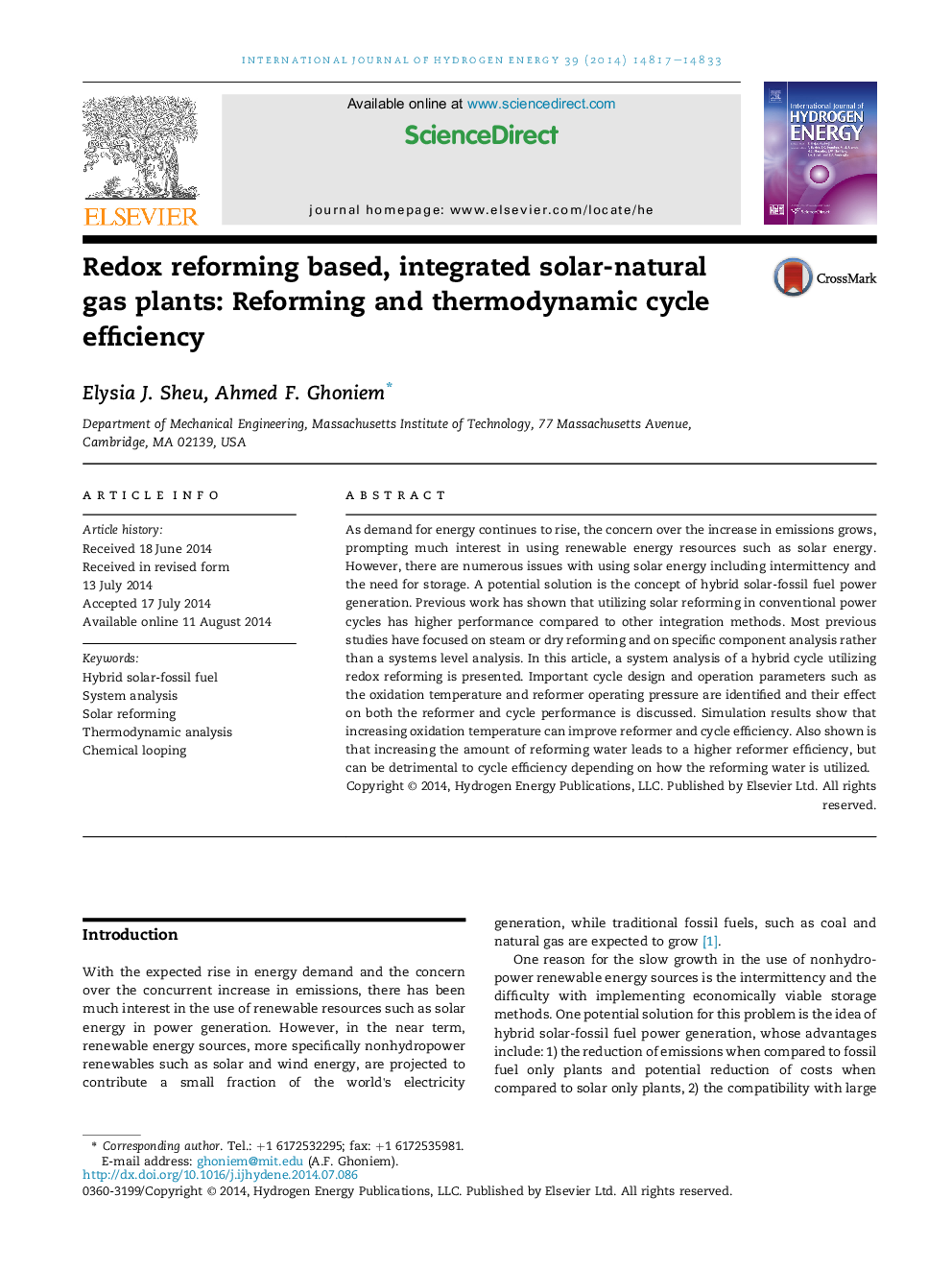| Article ID | Journal | Published Year | Pages | File Type |
|---|---|---|---|---|
| 7718071 | International Journal of Hydrogen Energy | 2014 | 17 Pages |
Abstract
As demand for energy continues to rise, the concern over the increase in emissions grows, prompting much interest in using renewable energy resources such as solar energy. However, there are numerous issues with using solar energy including intermittency and the need for storage. A potential solution is the concept of hybrid solar-fossil fuel power generation. Previous work has shown that utilizing solar reforming in conventional power cycles has higher performance compared to other integration methods. Most previous studies have focused on steam or dry reforming and on specific component analysis rather than a systems level analysis. In this article, a system analysis of a hybrid cycle utilizing redox reforming is presented. Important cycle design and operation parameters such as the oxidation temperature and reformer operating pressure are identified and their effect on both the reformer and cycle performance is discussed. Simulation results show that increasing oxidation temperature can improve reformer and cycle efficiency. Also shown is that increasing the amount of reforming water leads to a higher reformer efficiency, but can be detrimental to cycle efficiency depending on how the reforming water is utilized.
Keywords
Related Topics
Physical Sciences and Engineering
Chemistry
Electrochemistry
Authors
Elysia J. Sheu, Ahmed F. Ghoniem,
